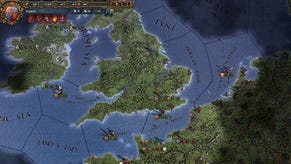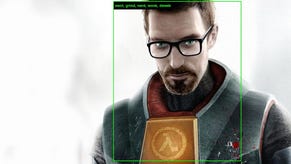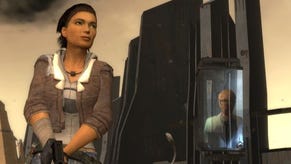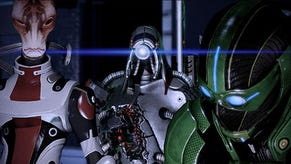Tickets, please! Watch Papers, Please's official short film
Approved for viewing
The closest I've come to an altercation with a border guard was on a family holiday. We'd arrived at Philadelphia airport, and the American at the desk was deeply suspicious about my parents lack of a shared surname. He demanded to know why they weren't married, prompting my dad to explain that while he was in favour of it for tax reasons, neither of them really believed in the importance of marriage as a cultural or religious institution. We made it through, just.
Who knows how that conversation would have played out in Arstotzka, the fictitious setting of Papers, Please and its newly released official short film. Developer Lucas Pope was involved with the writing, which helps explain how it manages to capture the spirit of the game so effectively. If you didn't get your fill of tortuous decisions packed with moral angst and grim ramifications from Papers, Please itself, then this should do the trick.
It was produced by Liliya Tkach and directed by Nikita Ordynskiy. I'm impressed with their attention to detail: it's hard to imagine how that booth could have been brought to life more authentically. It's not just the aesthetic that it nails either - those scanning and stamping montages do a great job of capturing blend of tension and monotony that defined the game, too.
I enjoyed it, though it did get me thinking about the difference between moral dilemmas in films and games. Papers, Please featured on a recent episode of The Electronic Wireless show where we nattered about morality, and I wish I'd done a better job of emphasising the unique position games are in to make you engage with your own moral reasoning.
Not many manage it, but Papers, Please is a prime example of how effective a tool agency can be. You'll sympathise with far more people than you can let safely let through, seen as making too many mistakes will result in the loss of your job and the starvation of your family. Both the film and the game demonstrate that you can't always save everyone, but I think that comes across much more effectively when it's YOU who's failing people.


















